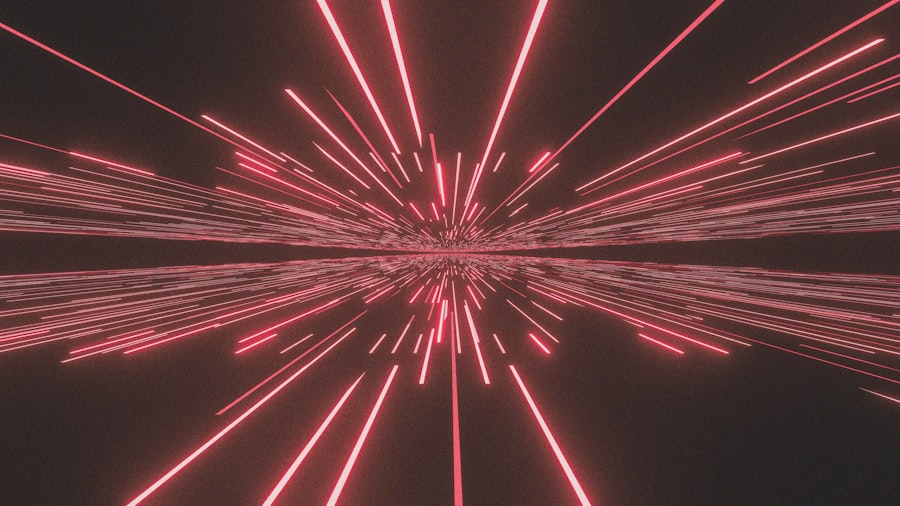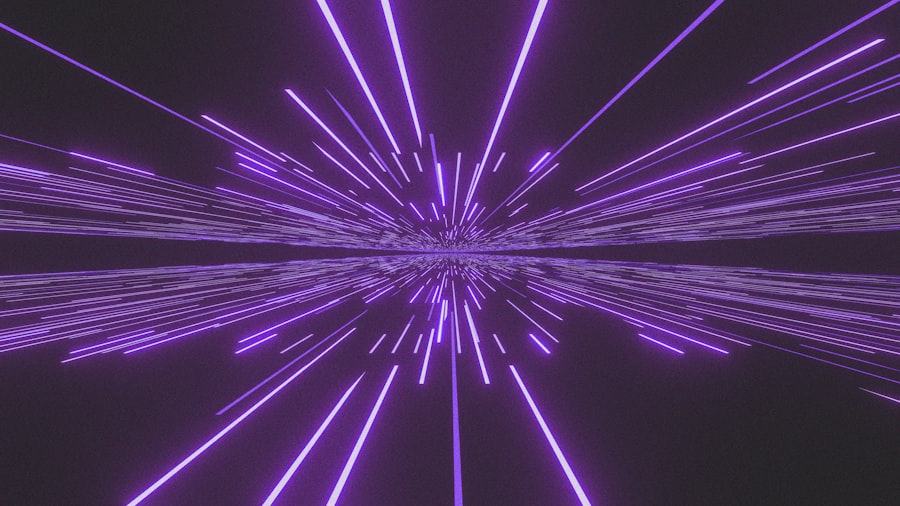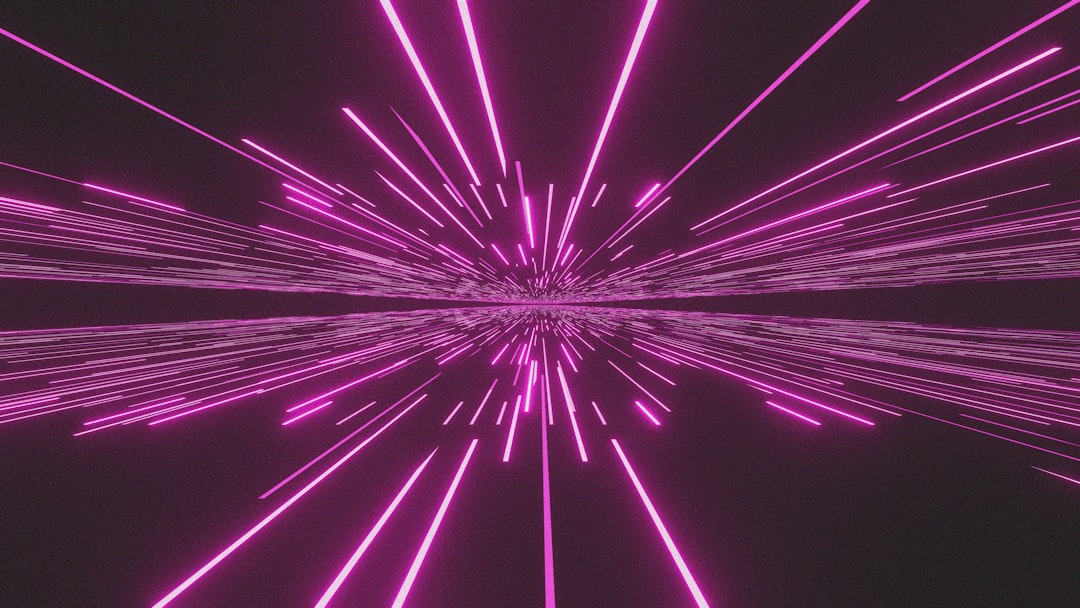Time has long been a subject of fascination and inquiry within the realm of physics. It serves as a fundamental dimension that shapes the universe, influencing everything from the motion of celestial bodies to the very fabric of reality itself. However, as physicists delve deeper into the nature of time, they encounter paradoxes and complexities that challenge conventional understanding.
The breakdown of time in physics is not merely an academic exercise; it raises profound questions about existence, causality, and the universe’s structure. This exploration invites both scientists and philosophers to reconsider their assumptions about time, leading to a rich tapestry of theories and ideas that continue to evolve. The journey into the intricacies of time begins with its definition and measurement.
Traditionally, time has been viewed as a linear progression from past to present to future, a sequence that governs events and experiences. Yet, as researchers probe the depths of quantum mechanics and relativity, they uncover a more nuanced picture. Time appears less like a steady river and more like a complex web, interwoven with the very fabric of space and matter.
This article aims to explore the multifaceted nature of time in physics, examining its implications across various theories and concepts.
Key Takeaways
- Time in physics is complex, involving concepts like entropy, relativity, and quantum mechanics.
- The arrow of time is linked to entropy, explaining why time seems to move forward.
- Relativity introduces time dilation, showing time can pass differently depending on speed and gravity.
- Quantum mechanics challenges classical views of time with uncertainty and probabilistic events.
- Theories like the multiverse and unified physics aim to reconcile time’s nature and explore possibilities like time travel.
The Concept of Time in Physics
In physics, time is often treated as a measurable quantity, a dimension akin to length or mass.
However, this straightforward approach belies the deeper philosophical questions surrounding the nature of time itself.
Is time an absolute entity that exists independently of human perception, or is it a construct shaped by our experiences? These questions have sparked debates among physicists and philosophers alike. One of the most significant challenges in defining time arises from its relationship with space.
In classical mechanics, time was considered separate from spatial dimensions, but Einstein’s theory of relativity revolutionized this understanding. Time and space became intertwined in a four-dimensional continuum known as spacetime. This shift not only altered how physicists approached time but also led to new insights into the nature of reality.
As researchers continue to explore the implications of spacetime, they grapple with the question of whether time is an intrinsic feature of the universe or merely a byproduct of human consciousness.
The Arrow of Time and Entropy

The concept of the arrow of time provides a framework for understanding the directionality of time’s flow. Unlike spatial dimensions, which can be traversed in any direction, time appears to move inexorably forward. This phenomenon is closely linked to the second law of thermodynamics, which states that entropy—essentially a measure of disorder—tends to increase over time in isolated systems.
As systems evolve, they transition from states of lower entropy to higher entropy, creating a clear distinction between past and future. The arrow of time raises intriguing questions about causality and the nature of events. If entropy dictates the direction of time, what does this mean for our understanding of cause and effect?
In many ways, this relationship challenges the notion of determinism, suggesting that while past events influence future outcomes, the inherent unpredictability of complex systems complicates this linearity. As physicists investigate these ideas further, they confront the paradoxes that arise when considering time’s unidirectional flow in conjunction with quantum mechanics.
The Theory of Relativity and Time Dilation
| Concept | Description | Formula | Example Value | Unit |
|---|---|---|---|---|
| Speed of Light (c) | Constant speed at which light travels in vacuum | c = 299,792,458 | 299,792,458 | m/s |
| Proper Time (Δt₀) | Time interval measured by an observer at rest relative to the event | — | 1 | seconds |
| Dilated Time (Δt) | Time interval measured by an observer moving relative to the event | Δt = Δt₀ / √(1 – v²/c²) | 1.1547 | seconds |
| Relative Velocity (v) | Speed of the moving observer relative to the event | — | 0.5c | m/s |
| Time Dilation Factor (γ) | Lorentz factor representing time dilation | γ = 1 / √(1 – v²/c²) | 1.1547 | dimensionless |
| Example: Muon Lifetime | Observed lifetime of muons moving at 0.98c | τ = τ₀ * γ | 31.9 μs (from 2.2 μs proper lifetime) | microseconds |
Einstein’s theory of relativity fundamentally altered humanity’s understanding of time by introducing the concept of time dilation. According to this theory, time is not experienced uniformly; rather, it can vary depending on an observer’s relative velocity and gravitational field. For instance, an astronaut traveling at near-light speed would experience time at a different rate than someone remaining on Earth.
This phenomenon has been experimentally confirmed through various tests, including observations involving atomic clocks on fast-moving jets. Time dilation challenges intuitive notions about simultaneity and temporal experience. Events that appear simultaneous to one observer may not be so for another moving at a different velocity.
This realization has profound implications for how individuals perceive reality and interact with one another across vast distances in space. As physicists continue to explore the ramifications of relativity, they uncover new layers of complexity regarding time’s nature and its relationship with space.
Quantum Mechanics and the Uncertainty Principle
Quantum mechanics introduces yet another layer of complexity to the understanding of time in physics. At the quantum level, particles do not adhere to classical notions of determinism; instead, they exist in states of probability until measured or observed. This uncertainty is encapsulated in Heisenberg’s Uncertainty Principle, which posits that certain pairs of physical properties cannot be simultaneously known with arbitrary precision.
For example, knowing a particle’s position with high accuracy inherently limits knowledge about its momentum. The implications for time are profound. In quantum mechanics, events do not unfold in a linear fashion; rather, they exist in a superposition of possibilities until an observation collapses them into a definitive state.
This raises questions about causality: if events are probabilistic rather than deterministic, how does one define the sequence in which they occur? The interplay between quantum mechanics and time continues to be a fertile ground for research, prompting physicists to reconsider foundational concepts about reality.
The Search for a Unified Theory of Time

As physicists grapple with the complexities surrounding time, many have embarked on a quest for a unified theory that reconciles the disparate frameworks of relativity and quantum mechanics. Such a theory would provide a comprehensive understanding of time’s role within the universe, bridging gaps between classical physics and modern theories. Various approaches have emerged in this pursuit, including string theory and loop quantum gravity, each offering unique perspectives on how time might be integrated into a cohesive framework.
The search for unity is not merely an intellectual endeavor; it holds practical implications for advancing technology and enhancing humanity’s understanding of the cosmos. A unified theory could potentially unlock new insights into phenomena such as black holes or the behavior of particles at high energies. However, achieving this synthesis remains an elusive goal, as researchers confront fundamental questions about the nature of reality itself and whether time can be fully understood within existing paradigms.
Time Travel and the Grandfather Paradox
The concept of time travel has captivated imaginations for centuries, inspiring countless works of fiction and philosophical musings. Within physics, however, it raises complex questions about causality and paradoxes that challenge conventional understanding. One such paradox is the grandfather paradox: if one were to travel back in time and prevent their grandfather from meeting their grandmother, would they cease to exist?
This scenario highlights the intricate relationship between cause and effect across temporal dimensions. While theoretical frameworks such as wormholes or closed timelike curves suggest potential avenues for time travel within the laws of physics, practical implementation remains speculative at best. Moreover, these theories often lead to further paradoxes that complicate our understanding of reality.
As physicists explore these ideas, they confront not only technical challenges but also philosophical dilemmas regarding free will and determinism.
The Role of Time in the Big Bang Theory
The Big Bang theory posits that the universe originated from an extremely hot and dense state approximately 13.8 billion years ago. This event marks not only the beginning of matter and energy but also the inception of time itself as we understand it. Prior to this moment, traditional notions of time may not apply; thus, exploring what existed “before” the Big Bang becomes a philosophical inquiry rather than a scientific one.
As researchers investigate cosmic background radiation and other remnants from this primordial event, they gain insights into how time has evolved alongside the universe. The expansion of space itself influences how we perceive temporal progression; as galaxies move away from each other, so too does our understanding of cosmic history shift. The interplay between time and cosmology continues to be an area ripe for exploration as scientists seek to unravel the mysteries surrounding the universe’s origins.
The Multiverse and the Concept of Parallel Universes
The multiverse theory posits that our universe is just one among many possible universes existing simultaneously within a vast multiverse framework. Each universe may have its own distinct laws of physics and timelines, leading to diverse realities that coexist alongside one another. This concept challenges traditional notions of time by suggesting that multiple timelines can exist concurrently, each unfolding according to its own set of rules.
The implications for understanding time are profound; if multiple universes exist with varying temporal dimensions, how does one define “now”? The multiverse theory invites speculation about alternate histories and futures—what choices might lead to different outcomes across parallel universes? As physicists explore these ideas further, they confront both scientific challenges and philosophical questions about existence itself.
The Philosophical Implications of Time’s Breakdown in Physics
The breakdown of time in physics extends beyond scientific inquiry; it delves into profound philosophical implications that challenge humanity’s understanding of existence and reality. As researchers grapple with concepts such as relativity, quantum mechanics, and multiverse theories, they confront questions about free will, determinism, and the nature of consciousness itself. If time is not an absolute entity but rather a construct shaped by perception and physical laws, what does this mean for individual agency?
Philosophers have long debated these issues, exploring how different interpretations of time influence ethical considerations and existential inquiries. The fluidity of temporal experience raises questions about responsibility—if events are probabilistic rather than deterministic, how does one assign blame or credit? As science continues to push boundaries regarding our understanding of time, it invites deeper reflection on humanity’s place within the cosmos.
The Future of Time in Physics: Speculations and Possibilities
Looking ahead, the future of time in physics remains an open field ripe for exploration and discovery. As advancements in technology enable more precise measurements and observations—such as those conducted through particle accelerators or space telescopes—scientists may uncover new insights into the nature of time itself. The quest for a unified theory could yield breakthroughs that reshape existing paradigms while addressing lingering questions about causality and existence.
Moreover, interdisciplinary collaboration between physicists and philosophers may foster richer dialogues surrounding temporal concepts. By bridging scientific inquiry with philosophical reflection, researchers can deepen their understanding not only of time but also its implications for humanity’s place within the universe. As humanity continues its journey through space and time, it remains poised at the precipice of discovery—ready to unravel further mysteries that lie ahead in this ever-evolving narrative.
Recent discussions in the field of physics suggest that our understanding of time may be fundamentally flawed, leading to the idea that time itself is breaking down. This intriguing concept is explored in greater detail in the article found at Freaky Science, where various theories and experiments are examined to shed light on the nature of time and its implications for our understanding of the universe.
WATCH THIS! The Glitch Is Real: Why Physics Says Time Is Breaking Down
FAQs
What does it mean when physicists say time is breaking down?
It refers to the idea that under certain extreme conditions, such as near a black hole or at the beginning of the universe, the conventional understanding of time as a continuous and consistent dimension may no longer apply. In these scenarios, the laws of physics as we know them may not fully describe how time behaves.
Why do physicists believe time might not be fundamental?
Some theories in physics, including quantum gravity and certain interpretations of relativity, suggest that time could be an emergent property rather than a fundamental aspect of reality. This means time might arise from more basic underlying processes rather than existing independently.
How does general relativity relate to the breakdown of time?
General relativity describes gravity as the curvature of spacetime caused by mass and energy. Near singularities, like those inside black holes, the equations predict infinite curvature, where the usual concept of time ceases to function normally, indicating a breakdown in the classical understanding of time.
What role does quantum mechanics play in the concept of time breaking down?
Quantum mechanics introduces uncertainty and probabilistic behavior at very small scales, which challenges the classical, smooth flow of time. Efforts to unify quantum mechanics with general relativity suggest that time may behave differently at the quantum level, potentially losing its conventional meaning.
Is time breaking down something we can observe directly?
Currently, the breakdown of time is a theoretical concept supported by mathematical models and indirect evidence. It cannot be observed directly with current technology because it occurs under extreme conditions that are not accessible for direct experimentation.
What are the implications if time is not fundamental?
If time is not fundamental, it could revolutionize our understanding of the universe, affecting theories about the origin of the cosmos, the nature of reality, and the unification of physics. It may lead to new physics beyond the Standard Model and general relativity.
Are there any experiments testing the breakdown of time?
While direct tests are challenging, experiments in high-energy physics, cosmology, and studies of black holes aim to probe conditions where time might behave unusually. Observations of gravitational waves and cosmic microwave background radiation also provide indirect insights.
How does the concept of time breaking down affect everyday life?
For everyday experiences and most practical purposes, time behaves consistently and predictably. The breakdown of time is relevant primarily in extreme cosmic environments and theoretical physics, so it does not impact daily life or conventional timekeeping.
